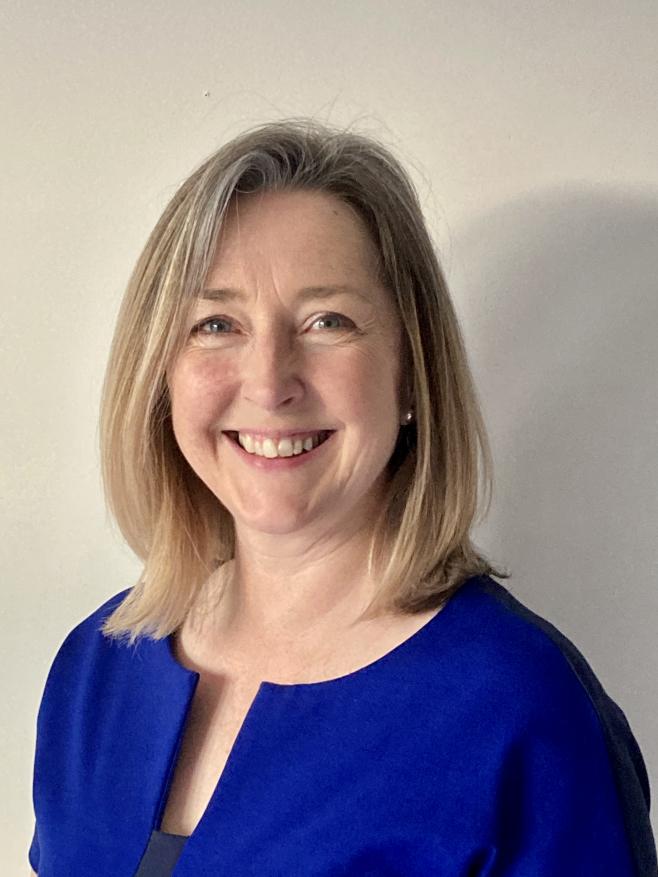You are here
Seeing through the lens of an allied health professional - fostering inclusion and tackling loneliness
12 May 2022

This year the theme of Mental Health Awareness Week is loneliness. Professor Jane Melton MBE, National Advisor: Mental Health (Allied Health Professionals) at Health Education England explains the role of Allied Health Professionals in understanding the impact of loneliness on mental health.
Looking after those who are vulnerable and most at risk of being lonely in our society is how we measure our success in a truly social world. As pressure on the NHS is increasing and the demand on nurses and medical staff is growing to deliver care, the AHP workforce remains an opportunity yet to be realised to support general practice and mental health services to deliver their full potential.
Loneliness is not a diagnosable illness, but feelings of isolation can be detrimental to mental health. Human beings are essentially social and want to connect with others so feeling alone can significantly affect some people’s wellbeing and quality of life. Tackling loneliness and the associated health issues is an area of care which is being transformed by Allied Health Professionals (AHPs)1 because they can approach health, care, and wellbeing in different ways.
The fear of being lonely often motivates individuals to seek out social connections but for some people, their personal circumstances such as physical isolation, moving to a new location, grief, or ageing can lead to feelings of loneliness, separation from others and remoteness from the social world. These feelings can often be attributed to internal factors such as low self-esteem and are particularly challenging for people experiencing mental illness and for those with learning disabilities or long term health conditions.
Supporting people to be involved in things that are important and meaningful to them leads to improved mental and physical health. This especially matters for vulnerable people in society – children and young people; perinatal mothers and fathers, people with learning disabilities, unpaid carers, older people and others who may be living alone or restricted in socialising for reasons including retirement, caring responsibilities, limited mobility or ill health.
AHPs lead mental health teams to new ways of working, providing expertise in rehabilitation and enablement which is needed to move away from over-reliance on hospital-based care. They provide professional and tailored interventions in local communities, primary, secondary, specialist, and community care in addition to across health and social care settings.
AHPs have been described as having a unique superpower2 which is helpful in primary care and wider health and care settings - they bring a new and original skillset to diagnose, treat, and support individuals so they can overcome the physical and psychological challenges associated with their mental health condition. They work in partnership with people and their families, the multidisciplinary team, and local communities to optimise and maintain the person’s physical and mental health, function, and quality of life.
AHPs can be first contact practitioners3 as well as working in hospital and community mental health teams. AHP provide innovative expertise and enable increased capacity to general and specialist practice as they can provide patients with faster access to the right care. Evidence suggests that two sessions with a primary care occupational therapist for a person with a mental health condition can lead to a 66% increase in confidence and a 50% reduction in GP appointments4.
Successes include the use of social prescribing support via AHPs in primary care which improve mental health and physical wellbeing through schemes which also address social issues such as debt, unemployment, gambling and loneliness.
Recovery Colleges, which see people as students in their own recovery, work with individuals, their families and support networks to facilitate involvement and connections with local communities. Occupational therapists and other AHPs often lead local Recovery Colleges with people who have experience of mental illness. Alongside their specialist work, AHPs are involved in addressing the stigma around mental ill health which often prevents people from seeking help and this can be both a result of and a contributing factor to feelings of loneliness and isolation.
Mental illness can cause individuals to feel excluded from their community or their environment and intensify feelings of loneliness. Interventions from AHPs for mental health practice encourage social inclusion and support individuals and groups to take part in society. These could include participation in art, drama, or music therapy, or access to speech and language support, access to mobility services in older age via physiotherapy /podiatry expertise or discussions on nutrition for general health. One example is the provision of art therapy museums5 where individuals experiencing mental illness can access specialist psychotherapeutic support within a community setting.
If loneliness is the cause of the problem, not all answers are necessarily medical – the person seeking health and social care might need a different, allied health approach. AHPs can support inclusion in activities and the community, building a connection with others, feeling physically and mentally stronger and relieving loneliness.
Further information
https://www.hee.nhs.uk/our-work/mental-health/new-roles-mental-health/allied-health-professionals
https://www.hee.nhs.uk/our-work/allied-health-professions